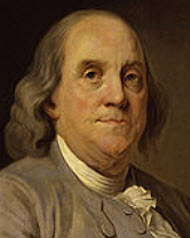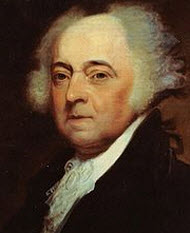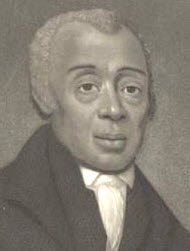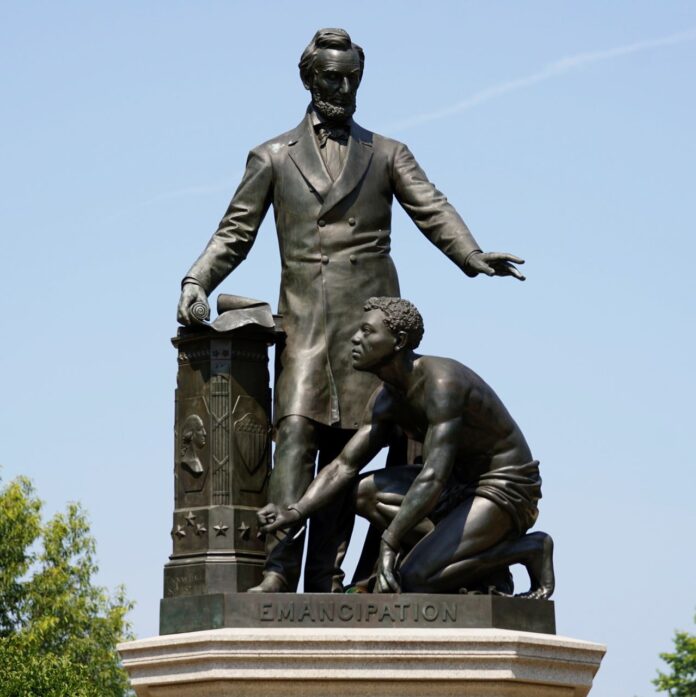No Guilt for Being a Child of God
Personally as a “White Person”, I feel no guilt for being white. I feel blessed to be a child of God. My spirit came from a Heavenly Father and my parents who both happened to be white, created my body. I know Heavenly Father loves all of His children and all of us have an equal opportunity to succeed or fail in this life. We will never have equal outcome as we all have our own individual freedom of choice.
I have several Black, Hispanic, Asian and many Fijian friends, and I love them as myself. They are wonderful children of God. As Martin Luther King said, “I have a dream that my four little children will one day live in a nation where they will not be judged by the color of their skin but by the content of their character.” I love this quote as many do. Martin Luther King also said, “People fail to get along because they fear each other; they fear each other because they don’t know each other; they don’t know each other because they have not communicated with each other.” That is how I try and live my life.
I don’t need to overcome any silly white fragility, I just need to love my neighbor as myself. Christ is my Savior and it is He I must obey not someone who wrote a book of nonsense or someone who calls me names.
More and more society it trying to replace God with man. They don’t want to live by God’s law as it is seemingly judgmental. These people don’t want any judgement they want no restrictions on what ever they want, even if it is illegal or immoral. Please be aware of this harmful idea called White Fragility.
The Love of Joseph Smith
Secondhand Account Mary Frost Adams, December 1906
“While [Joseph was] acting as mayor of the city, a colored man named Anthony was arrested for selling liquor on Sunday, contrary to law. He pleaded that the reason he had done so was that he might raise the money to purchase the freedom of a dear child held as a slave in a Southern State. . . . Joseph said, ‘I am sorry, Anthony, but the law must be observed, and we will have to impose a fine.’ The next day Brother Joseph presented Anthony with a fine horse, directing him to sell it, and use the money obtained for the purchase of the child. (Mary Frost Adams, “Joseph Smith, the Prophet,” Young Woman’s Journal, December 1906, as quoted in Hyrum L. Andrus, Joseph Smith, the Man and the Seer (Salt Lake City: Deseret Book, 1960), 33.)
Thomas Jefferson: Liberty & Slavery
Thomas Jefferson helped to create a new nation based on individual freedom and self-government. His words in the Declaration of Independence expressed the aspirations of the new nation. But the Declaration did not extend “Life, Liberty, and the pursuit of Happiness” to African Americans, indentured servants, or women. Twelve of the first eighteen American presidents owned slaves. Thomas Jefferson drafted the Declaration and called slavery an “abominable crime,” yet he was a lifelong slaveholder. Fearful of dividing the fragile new nation, Jefferson and other founders who opposed slavery did not insist on abolishing it.
It took 87 more years―and the Civil War, the Emancipation Proclamation, and the 13th Amendment―to end slavery. https://www.monticello.org/slavery-at-monticello
George Washington AGAINST Slavery Quotes
“I wish from my soul that the legislature of this State could see the policy of a gradual Abolition of Slavery.” From George Washington to Lawrence Lewis, 4 August 1797
“Not only do I pray for it, on the score of human dignity, but I can clearly foresee that nothing but the rooting out of slavery can perpetuate the existence of our union, by consolidating it in a common bond of principle.” Attributed to GEORGE WASHINGTON.—John Bernard, Retrospections of America, 1797–1811, p. 91 (1887). This is from Bernard’s account of a conversation he had with Washington in 1798.
“[Let] the poor the needy and oppressed of the Earth, and those who want Land, resort to the fertile land of our western country, the second land of Promise, and there dwell in peace, fulfilling the first and great commandment.” From George Washington to David Humphreys, 25 July 1785
“I never mean, unless some particular circumstances should compel it, to possess another slave by purchase, it being among my first wishes to see some plan adopted, by which slavery in the country may be abolished by law.” From George Washington to John Francis Mercer, 9 September 1786
Lincoln and the Emancipated-Slave Statue

Allen C. Guelzo and James Hankins describe the poignant origins of the Emancipation Memorial in Washington, paid for by the donations of newly freed slaves (“A Monument to Our Shared Purpose,” Life & Arts, June 30). The story of the memorial’s design is equally poignant.
The scene depicted actually happened. Admiral David Dixon Porter accompanied President Lincoln to Richmond to accept the surrender of the Confederacy, and recounted the story in his 1885 memoir.
During Black Lives Matter and Antifa riots, this statue was attempted to be torn down, but it was saved. What are these Marxist groups thinking? They aren’t. They just hate and we as Latter-day Saints need to push back and support our country. Let’s not forget our past. The Lord needs us in the battle.
(CNN) A statue in a Boston park depicting a formerly enslaved man kneeling before President Abraham Lincoln will be removed, according to city officials. After two public hearings, the Boston Art Commission voted to remove the Emancipation Group, a statue installed in 1879 in Boston’s Park Square, according to a statement announcing the removal. The statue is a replica of one in Washington, DC, and has been controversial since its installation for the depiction of the freed slave. The statue features Archer Alexander, a Black man who “assisted the Union Army, escaped slavery, and was recaptured under the Fugitive Slave Act,” the statement says.
Black conservatives rebuke call to remove D.C.’s Emancipation Memorial
Did You Know?
“The three-fifths clause was not a measurement of human worth; it was an attempt to reduce the number of pro-slavery proponents in Congress.” Wallbuilders.com see *Quote Bottom.

29th Conference Tickets now!
Were all of America’s Founding Fathers racists, pro-slavery, and hypocrites?
By WallBuilders, Inc 1999
“One of the most frequent tactics employed to discredit America’s Founding Fathers is to say that the Founding Fathers were all pro-slavery racists and hypocrites. Therefore, why should we care what their views were on any subject? African-American professor Walter Williams wisely explained the use of this tactic in these words:”
Walter E. Williams

Walter Edward Williams (born March 31, 1936) is an American economist, commentator, and academic. He is the John M. Olin Distinguished Professor of Economics at George Mason University, as well as a syndicated columnist and author known for his classical liberal and libertarian views.[2] His writings frequently appear on Townhall.com, WND, and Jewish World Review. Wikipedia
“Politicians, news media, college professors and leftists of other stripes are selling us lies and propaganda. To lay the groundwork for their increasingly successful attack on our Constitution, they must demean and criticize its authors. As Senator Joe Biden demonstrated during the Clarence Thomas hearings, the framers’ ideas about natural law must be trivialized or they must be seen as racists.”
WallBuilders continues saying, “These people paint a false picture of the Founding Fathers and the issue of slavery. The historical fact is that slavery was not the product of, nor was it an evil introduced by the Founders; slavery was introduced in America nearly two centuries before the Founders. In fact, Supreme Court Chief Justice John Jay noted that there had been few serious efforts to dismantle the institution of slavery prior to the Founding Fathers.
The Revolution was a turning point in the national attitude against slavery—and it was the Founders who contributed greatly to that change. In fact, one of the reasons given by Thomas Jefferson for the separation from Great Britain was a desire to rid America of the evil of slavery imposed on them by the British.

Benjamin Franklin explained that this separation from Britain was necessary since every attempt among the Colonies to end slavery had been thwarted or reversed by the British Crown. In fact, in the years following America’s separation from Great Britain, many of the Founding Fathers who had owned slaves released them (e.g., John Dickinson, Ceasar Rodney, William Livingston, George Washington, George Wythe, John Randolph, and others).
It is true, however, that not all of the Founders from the South opposed slavery. According to the testimony of Thomas Jefferson, John Rutledge, and James Madison, those from North Carolina, South Carolina, and Georgia favored slavery.
Nevertheless, despite the support in those states for slavery, the clear majority of the Founders was opposed to this evil—and their support went beyond words.
For example, in 1774, Benjamin Franklin and Benjamin Rush founded America’s first antislavery society; John Jay was president of a similar society in New York. When Constitution signer William Livingston heard of the New York society, he, as Governor of New Jersey, wrote them, offering:
“I would most ardently wish to become a member of it [the society in New York] and… I can safely promise them that neither my tongue, nor my pen, nor purse shall be wanting to promote the abolition of what to me appears so inconsistent with humanity and Christianity… May the great and the equal Father of the human race, who has expressly declared His abhorrence of oppression, and that He is no respecter of persons, succeed a design so laudably calculated to undo the heavy burdens, to let the oppressed go free, and to break every yoke.”
Other prominent Founding Fathers who were members of societies for ending slavery included Richard Bassett, James Madison, James Monroe, Bushrod Washington, Charles Carroll, William Few, John Marshall, Richard Stockton, Zephaniah Swift, and many more.
In fact, based in part on the efforts of these Founders, Pennsylvania and Massachusetts abolished slavery in 1780; Connecticut and Rhode Island did so in 1784; New Hampshire in 1792; Vermont in 1793; New York in 1799; and New Jersey in 1804. Furthermore, the reason that the states of Ohio, Indiana, Illinois, Michigan, Wisconsin, and Iowa all prohibited slavery was a federal act authored by Rufus King (signer of the Constitution) and signed into law by President George Washington which prohibited slavery in those territories.
It is not surprising that Washington would sign such a law, for it was he who had declared:

“I can only say that there is not a man living who wishes more sincerely than I do to see a plan adopted for the abolition of it [slavery].”
—George Washington
Notice a few additional examples of the Founder’s strong antislavery sentiments:
“[M]y opinion against it [slavery] has always been known… [N]ever in my life did I own a slave.” —John Adams, Signer of the Declaration of Independence and U.S. President. The Works of John Adams, Second President of the United States (Boston: Little, Brown, and Company, 1854), vol IX pp. 92-93. In a letter to George Churchman and Jacob Lindley on January 24, 1801.
“[W]hy keep alive the question of slavery? It is admitted by all to be a great evil.” —Charles Carroll, Signer of the Declaration of Independence. Kate Mason Rowland, Life and Correspondence of Charles Carroll of Carrollton (New York and London: G.P. Putnam’s Sons, 1898), Vol. II, pg. 231.
“As Congress is now to legislate for our extensive territory lately acquired, I pray to Heaven that they …[c]urse not the inhabitants of those regions, and of the United States in general, with a permission to introduce bondage [slavery].” —John Dickinson, Signer of the Constitution and Governor of Pennsylvania. Charles J. Stille, The Life and Times of John Dickinson (Philadelphia: J.B. Lippincott Company, 1898) p. 324.
“That men should pray and fight for their own freedom and yet keep others in slavery is certainly acting a very inconsistent as well as unjust and perhaps impious part.” —John Jay, President of Continental Congress, Chief-Justice of the U.S. Supreme Court, and Governor of New York. Correspondence and Public Papers of John Jay, Henry P. Johnston, editor (New York and London: G.P. Putnam’s Sons, 1891), Vol. III, pp. 168-169. In a letter to Dr. Richard Price on Sep. 27, 1785.
“Christianity, by introducing into Europe the truest principles of humanity, universal benevolence, and brotherly love, had happily abolished civil slavery. Let us who profess the same religion practice its precepts… by agreeing to this duty.” —Richard Henry Lee, President of Continental Congress and Signer of the Declaration of Independence. Memoir of the Life of Richard Henry Lee and His Correspondence With the Most Distinguised Men in America and Europe (Philadelphia: H.C. Carey and I. Lea, 1825), Vol. I, pp. 17-19. The first speech of Richard Henry Lee in the House of Burgesses.
“[I]t ought to be considered that national crimes can only be and frequently are punished in this world by national punishments; and that the continuance of the slave trade, and thus giving it a national sanction and encouragement, ought to be considered as justly exposing us to the displeasure and vengeance of Him who is equally Lord of all and who views with equal eye the poor African slave and his American master.” —Luther Martin, Constitutional Convention Delegate. James Madison, The Records of the Federal Convention, Max Farrand, editor (New Haven: Yale University Press, 1911), Vol. III, pg. 211.
“Domestic slavery is repugnant to the principles of Christianity… It is rebellion against the authority of a common Father. It is a practical denial of the extent and efficacy of the death of a common Savior. It is an usurpation of the prerogative of the great Sovereign of the universe who has solemnly claimed an exclusive property in the souls of men.” —Benjamin Rush, Signer of the Declaration of Independence. Minutes of the Proceedings of a Convention of Delegates From the Abolition Societies Established in Different Parts of the United States, Assembled at Philadelphia, on the First Day of January, One Thousand Seven Hundred and Ninety-Four… (Philadelphia: Zachariah Poulson, 1794), p. 24. “To the Citizens of the United States.”
“Slavery, or an absolute and unlimited power in the master over life and fortune of the slave, is unauthorized by the common law… The reasons which we sometimes see assigned for the origin and the continuance of slavery appear, when examined to the bottom, to be built upon a false foundation. In the enjoyment of their persons and of their property, the common law protects all.”
—James Wilson, Signer of the Constitution and U.S. Supreme Court Justice. James Wilson, The Works of James Wilson, Robert Green McCloskey, editor (Cambridge, MA: Harvard University Press, 1967), Vol. II, pg. 605.
“It is certainly unlawful to make inroads upon others… and take away their liberty by no better right than superior force.”
—John Witherspoon, Signer of the Declaration of Independence. The Works of John Witherspoon (Edinburgh: J. Ogle, 1815), p. 81, “Lectures on Moral Philosophy.”
Numerous similar quotes could be cited.
Yet despite the progress made by many of the Founders to end the institution of slavery and to recognize in practice that “all men are created equal,” it is currently charged that in the Constitution, the Founders considered a black to be only three-fifths of a person. This charge is yet another misportrayal of the truth.
Three-Fifths Clause
The records of the Constitutional Convention make clear that the three-fifths clause was actually an antislavery provision. As Professor Walter Williams explains:
“It was slavery’s opponents who succeeded in restricting the political power of the South by allowing them to count only three-fifths of their slave population in determining the number of congressional representatives. The three-fifths of a vote provision applied only to slaves, not to free blacks in either the North or South.” (emphasis added)

*The three-fifths clause was not a measurement of human worth; it was an attempt to reduce the number of pro-slavery proponents in Congress. By including only three-fifths of the total numbers of slaves into the congressional calculations, Southern states were actually being denied additional pro-slavery representatives in Congress.
While there were a few Founding Fathers who were pro-slavery, the truth is that it was the Founders who were responsible for planting and nurturing the first seeds for the recognition of black equality and for the eventual end of slavery. This is a fact made clear by Richard Allen.

Allen had been a slave in Pennsylvania, but was freed after he converted his master to Christianity. A close friend of Benjamin Rush and several other Founding Fathers, he went on to become the founder of the A.M.E. Church in America. In an early address entitled “To the People of Color,” Allen reminded them:
“Many of the white people [who] have been instruments in the hands of God for our good, even such as have held us in captivity, are now pleading our cause with earnestness and zeal.”
-Richard Allen

If this view of the Founding Fathers and many of their names were new to you, there is a solution to help acquaint you with many of them. Wallbuilders has reprinted an 1848 book entitled Lives of the Signers of the Declaration of Independence. This work, long used as a school text, gives a brief and informative biographical sketch of each of the fifty-six men who signed the Declaration of Independence.
Author: David Barton of WallBuilders. Provided by Films for Christ.
Related information
What are the consequences of racial prejudice and false beliefs about the origin of races? Answer
Get biblical answers to racial hot-topics. Where did the races come from? How did skin color come about? Why is it important to have a biblical foundation for such issues?
Copyright © 1995, 1999, WallBuilders, Inc.




